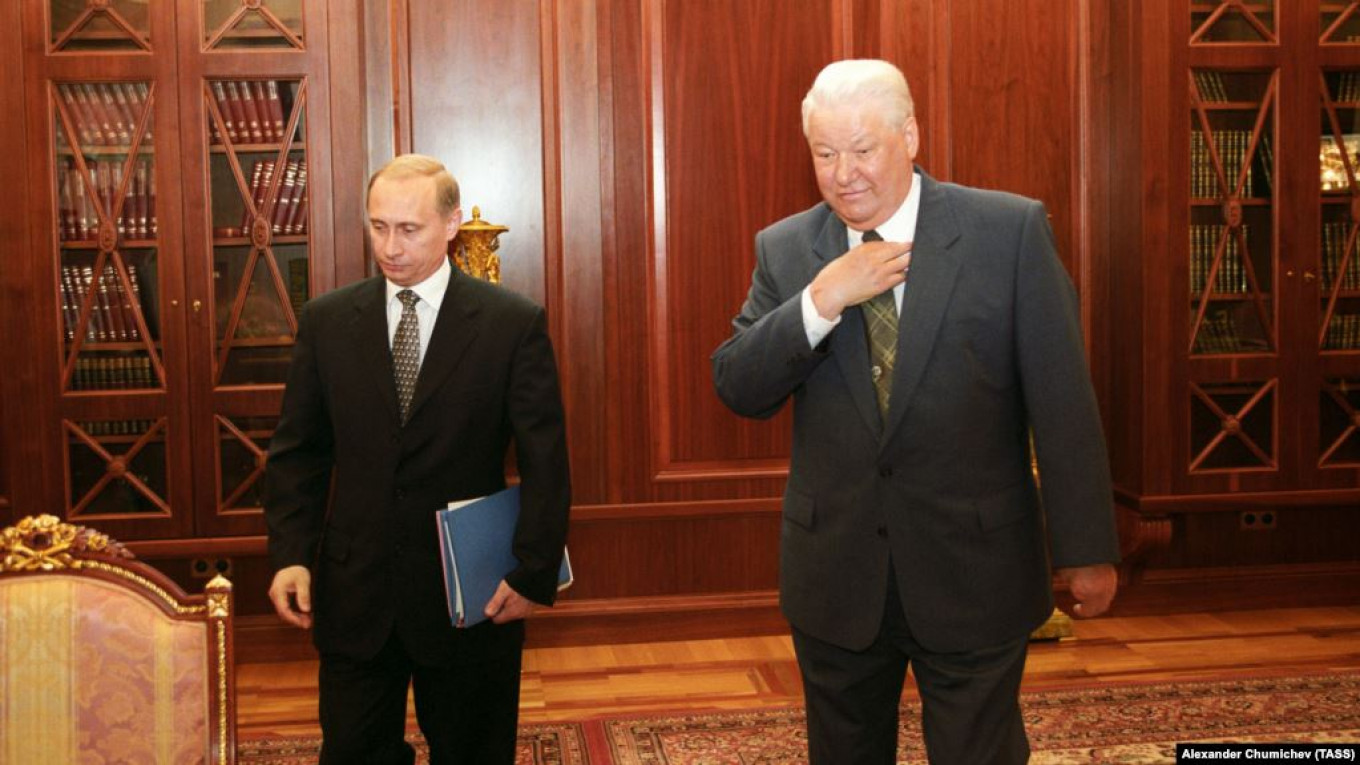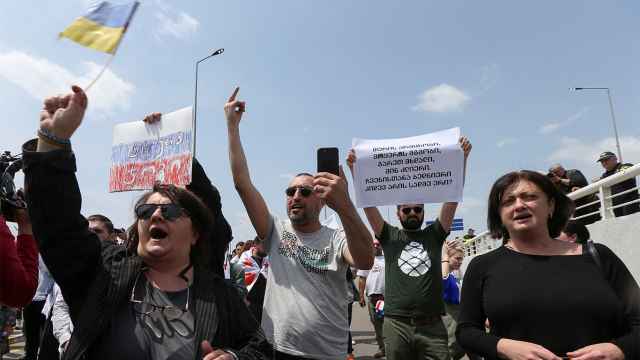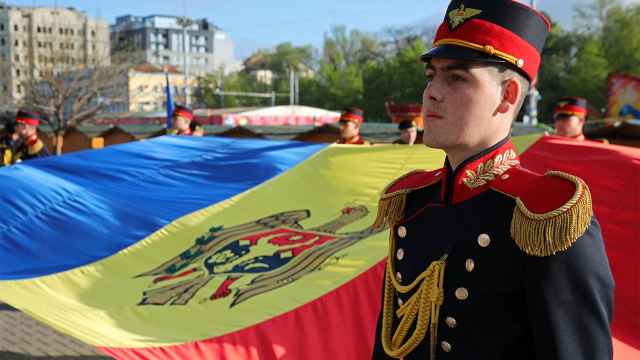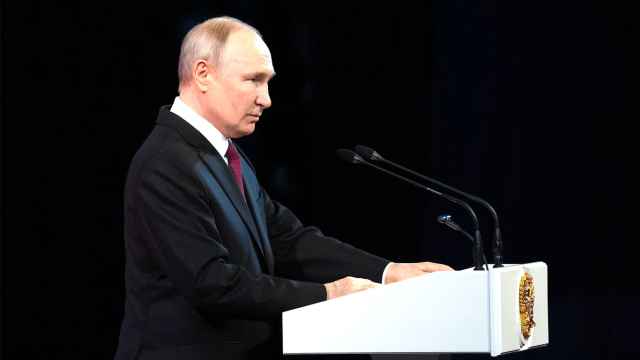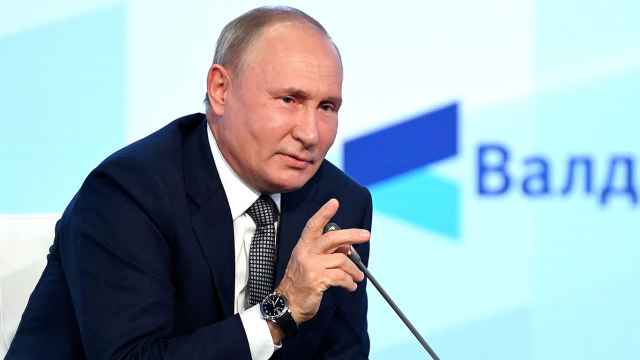Twenty years ago this month, resigning Russian President Boris Yeltsin tapped Vladimir Putin to be his successor. Unlike Yeltsin, who’d been a prominent political figure in Moscow for about a decade, Putin was still relatively unknown outside of Russia, having been appointed prime minister from obscurity in August 1999. There was one big question on the minds of Westerners trying to figure out where Russia was going and one of the first to ask it was former U.S. diplomat Thomas Graham: “Who is Vladimir Putin, and what does he believe in?” A few weeks later, American journalist Trudy Rubin famously put it more bluntly, asking a panel of Russian officials and businesspeople almost the same thing: “Who is Mr. Putin?” Instead of an answer, several journalists wrote later, “there was a pause.”
The new acting president’s opaqueness stirred up a storm of expert and press speculation about what a Putin presidency would mean for Russia. Below is a sampling of some of that discussion. Where possible, the predictions are paired with later statements on Putin to show the evolution or accuracy of the commentators’ thinking.
- 2000: “I think as you look forward, at least for what you can see, from what he's said, if you read carefully the statements that he's made and watch his campaign, you find a person who's very realistic — indeed brutally realistic—who's very pragmatic, showing no evidence of ideology or principle in trying to achieve his objectives, and whose ambitions for Russia are essentially modern and moderate, namely that Russia not fall into collapse and not fall into the third rank of poor powers.” (NPR, 03.27.00)
- 2016: “Everyone knows that Russia is a dangerous, difficult, often disappointing state with which to try to do business. Putin is a KGB man. His view of the world, and Russia’s place in it, was shaped by formative experiences as an intelligence operative. He carries with him deep scars from the collapse of the Soviet Union… A fierce patriot, he is determined to assert Russia’s role as a great power of which his fellow citizens can be proud. He is prepared to play rough and has built formidable military capabilities he is not reluctant to use. And Putin is especially sensitive to any signs of disrespect. Nonetheless, in pursuit of his goals, he has shown himself to be a strong, strategic, pragmatic leader who has played a weak hand more effectively than many who had more advantages.” (The National Interest, 12.18.16)
- 2000: “Initial Western reactions to Mr. Putin's ascendancy are eerily similar to the earlier romancing of Milosevic. They may encourage the worst tendencies in Russia's volatile political moods. Despite the prevailing tendency to describe Russia as a functioning democracy, Mr. Putin's emergence reflects the constitutionally manipulative self-assertion of Russia's antidemocratic forces: the kleptocratic oligarchs, the old KGB apparatus, and the military commanders. It is a measure of how badly Russia's democratic experiment has fared that even to express the hope that Mr. Putin will become Russia's Pinochet is the equivalent of wishing Russia well.” (The Wall Street Journal, 01.05.00)
- 2014: “What we are seeing in Ukraine … [is] a symptom of a more basic problem: namely, the gradual but steady emergence in Russia over the last six or seven years of a quasi-mystical chauvinism. Putin has taken the lead in this and its content is significant for the totality of Russia's relations with the world, and the West in particular.” (Transcript of remarks at the Wilson Center, 06.16.14)
- 2000: "Putin gave all the guarantees — he's their man [loyal to Yeltsin’s inner circle]… The regime won't change, there won't be a fight against corruption, the interests and the privileges of the oligarchy will be fully protected… If it continues like this, Vladimir Putin will soon see his popularity wane because people will see they have been tricked." (La Stampa/Reuters, 01.03.00)
- 2016: “We need now to realize that we are facing a wave of social problems that will determine Russia’s future, the situation in education, healthcare and other areas. If we cannot find solutions to these problems, Russia will not modernize. We need a different program from that advocated by Putin. I have criticized Putin for bumptiousness. I respect him as a political leader and a person, but I believe his current policies are an obstacle to progress.” (Time, 05.23.16)
- 1999: “If the West believes that Russia's parliamentary elections were a strong vote for democracy and market reform, it is deluding itself. … Putin and his Kremlin allies showed great skill in destroying political opponents. … Putin's victory was won at great cost to democratic norms. The Kremlin used its control of the two leading national television stations to smear [opponent] Mr. Luzhkov and his allies relentlessly… The government's tax authorities harassed media outlets that refused to hew to the line. … With this victory, Mr. Putin has become the odds-on favorite to win the presidential elections next June. But who is Vladimir Putin, and what does he believe in? … [H]is phenomenal rise is a direct consequence of the brutal military operation in Chechnya, which remains widely popular with the Russian public. … Even if Mr. Putin is a reformer at heart, he will have a hard time pushing the brand of reform favored by the West and Mr. Chubais through the supposedly more centrist parliament.” (New York Times, 12.21.99)
- 2017: Putin’s “mission, when he rose to power 18 years ago, was to restore his country’s status as a great power — one of the few that determine the structure, substance and direction of world affairs — and to ensure that no global problem could be resolved without Moscow. He has made considerable progress.” (Financial Times, 12.17.17)
- 2001: “President Putin does not want to basically be held to the United States' agenda. That's been very clear from the beginning. He doesn't really want to be talking about missile defense and ABM. Washington put this on the table for him to address. He wants to really get on with his main priority, which is economic development, the reform of the Russian economy and really integrating Russia into the international markets. … Putin is hoping that his flexibility will allow him to get other important things, like a closer relationship with NATO." … [Under Putin] "Russia's long-term goal is no longer to be a military superpower, it's to be an energy superpower. And the future for Russia's new energy power play is obviously in Europe and Asia, not so much in the United States." (CNA, 11.12.01, The Moscow Times, 12.21.01, Irish Times, 11.12.01)
- 2017: “Vladimir Putin needs to be taken seriously. He will make good on every promise or threat — if Putin says he will do something, then he is prepared to do it; and he will find a way of doing it, using every method at his disposal. … Putin has no reliable interlocutors in the West from his perspective, only a handful of intermediaries. And he simply does not trust anyone. … [C]ontrary to the prevailing external assessment, Putin is a strategic planner. The notion that Putin is an opportunist, at best an improviser, but not a strategist, is a dangerous misread. Putin thinks, plans, and acts strategically. (Brookings, 01.13.17)
- 2000: “I think there is a strong chance that Putin will try to take Russia in a more authoritarian direction but his capacity to change the country is limited. There is certainly no possibility of a restoration of totalitarianism.” (CNN, 03.23.00)
- 2005: “In the case of Russia, anyone professing to respect the views of ordinary Russians must also recognize that a majority has supported Putin and his authoritarian program because their experience of pseudo-democracy in the 1990s was so terrible.” (Carnegie Endowment for International Peace, 01.14.05)
- 2015: “To judge by the elections and every opinion poll in this area, the overwhelming mass of the Russian establishment and Russian people approve of Putin’s foreign-policy record. If Western governments want to pursue reasonably good relations with Russia, this is the reality with which they will have to work. For the foreseeable future, like it or not, what we see is what we will get.” (The National Interest, 04.03.12)
- 2000: “Yes, Mr. Putin is certainly an anti-Communist, but Soviet-style Communism no longer poses a real threat to Russia — only a fraction of those who vote for the Communist Party want a return to the past. The danger is authoritarianism fused with nationalism and imperialism: a government that respects some basic economic and civil freedoms, because they enjoy popular support, but represses political expression and exploits anti-Western sentiments to isolate Russia from the world. It is possible, of course, that should Mr. Putin win the presidency he will prove a pragmatic politician and steer a reasonable course. But his political rhetoric makes clear that we can't take anything for granted.” (New York Times, 01.02.00)
- 2004: More than a decade after the fall of the USSR, democratic “expectations have not been realized. Since ex-KGB colonel Vladimir Putin took over as president in 2000, Russia's democratic institutions have been muzzled, its civil rights restricted, and its cooperation with the international community far from assured.” (Foreign Affairs, Summer 2004)
- 2000: “Will Putin win? He is not in a race with other Russian politicians, who will run for the exercise but admit they have little hope. Putin is in a race with disillusionment — that moment when Russians realize that the Chechens won't be beaten without heavy losses, that the flight of capital will continue under Chubais-Berezovsky, and that military spending robs Russia of its ability to compete. Because his deal with Yeltsin and his Kremlin backers has shortened that race to an 80-day dash, he is widely expected to beat disillusionment to the wire. After his legitimation, as his stock drops, Putin will be tempted to use his military to ‘liberate’ the near-abroad and to use his controlled media to express assent and his K.G.B. to suppress dissent. Putin's ascension was quite a trick. We have a cunning and energetic adversary. We should do nothing to finance his clique's power or further his tiger's ride.” (New York Times, 01.06.00)
- 2002: “In the new, uncertain world, Russia and America face the threat of global terrorism and unconventional warfare together. They will need each other as partners for much of this new century.” (The Moscow Times, 11.27.02)
- 2003: "Even if, on this issue, they're going against what we would like them to do, after the war is over, we'll still want their cooperation, and they will still want to work with us." (Austin American-Statesman, 03.15.03)
- 2016: “The experience of the past sixteen years suggests that Putin is a pragmatic leader willing to make deals if he believes they are in Russia’s interest.” (Carnegie Moscow Center, 10.31.16)
- 2017: “For President Putin, whose mission has been to restore Russia’s role on the world stage and negate what he sees as the disastrous legacy of the 1990s, the fundamental goal is to have the United States treat Russia as though it were the Soviet Union. That means recognizing it as a fully sovereign great power whose smaller neighbors enjoy only limited sovereignty, and America’s equal whose legitimate interests must be respected. The goal would be to create a new tripartite Yalta system, where the United States, Russia and China agree to divide the world into spheres of influence.” (The National Interest, 08.17.17)
Daniel Yergin and Thane Gustafson:
- 2000:“What kind of Russian president will Vladimir Putin be? He has shown himself a careful politician, courteous in his dealings with fellow politicians, including the opposition. He has been tough but businesslike in his initial moves on economic policy. He projects vigor and positions himself as the apostle of Russia's ‘new national idea’… Will Mr. Putin provide the ‘intelligent, strong, energetic’ leadership that Mr. Yeltsin promised in his resignation statement? First and foremost, Mr. Putin presents himself not only as a democrat but also as a derzhavnik, a proponent of a strong state. In a statement posted on his new Web site last we — perhaps not coincidentally just three days before Mr. Yeltsin's resignation — Mr. Putin emphasized his determination to restore ‘paternalistic’ state power.” (The Wall Street Journal, 01.03.00)
This article was first published by Russia Matters
A Message from The Moscow Times:
Dear readers,
We are facing unprecedented challenges. Russia's Prosecutor General's Office has designated The Moscow Times as an "undesirable" organization, criminalizing our work and putting our staff at risk of prosecution. This follows our earlier unjust labeling as a "foreign agent."
These actions are direct attempts to silence independent journalism in Russia. The authorities claim our work "discredits the decisions of the Russian leadership." We see things differently: we strive to provide accurate, unbiased reporting on Russia.
We, the journalists of The Moscow Times, refuse to be silenced. But to continue our work, we need your help.
Your support, no matter how small, makes a world of difference. If you can, please support us monthly starting from just $2. It's quick to set up, and every contribution makes a significant impact.
By supporting The Moscow Times, you're defending open, independent journalism in the face of repression. Thank you for standing with us.
Remind me later.


